‘We have to be adaptable, this is how all life survives.’
______________________________________

3pm, Saturday 23rd September 2023
The Barn, Abington Lodge, Taylor Avenue, NN3 2DG
Key terms:
- Bio-diversity – where an ecosystem has many different species, making it more resilient
- Commons – a space or resource that no one owns but anyone can use
- Degrowth – the idea that we should “take only what we need and leave the rest”, stopping the industries of endless of extraction and production
- Ecology – the society of living beings
- Extraction – taking raw materials from the earth
- Invasive species ecosystem which has not adapted to meet its needs
- Land occupation – when a space is controlled by a group of people either for the short term to demand political reforms or for the long term to return the land to common use
- Permaculture – a kind of ‘regenerative agriculture’ that imitates natural ecosystems to create a self-sustaining space, often to grow foods for humans and other animals
- Regenerative agriculture – a way of farming that improves ecological health
- Upcycle – to upcycle means to make something new with materials that will otherwise be wasted, like making a planter out of a wooden pallet
____________________________________________________
The Learning Circle wants to build relationships, spread knowledge and create discussion space. This way, we can learn how to build stability for all people and ecology.
We met with South Court Environmental to talk about perspective, and how people can improve our relationship with the rest of the natural world.
People used to know their neighbours, and more of us understood the ecosystems around us, but this is much less common now. It is clear that dividing people and nature has caused harm.
Powerful industries treat nature like a tool shed, and no tool shed is infinite, but the cycle of life is infinite.
The ecosystem only works when each lifeform feeds into the next, but modern industry turns everything into waste product, rather than keeping it cycling around (like with compost or ‘up-cycling‘). If everything has a place, we can create a sustainable world for everyone – this is a principle of degrowth.
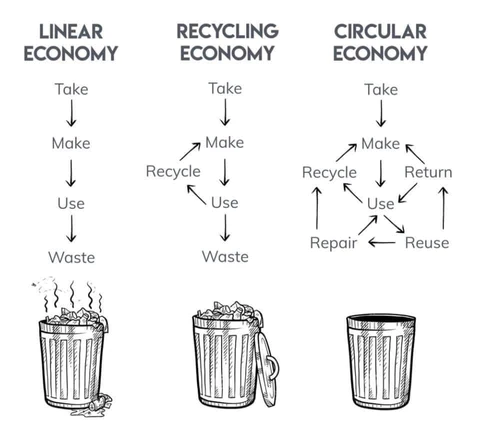
Intro:
South Court Environmental is an ecological group from Northampton that started around 1990.
Memories, knowledge, and ecosystems can be lost if they aren’t taken care of. This is why SCE works to help local biodiversity, make sure species are stable, increase people’s understanding of ecology, build community, and share food.
They manage 6 sites across Northampton which act as heat and carbon sinks, and which grow food for local people, and where members can learn about the ecology.
If you’re interested to visit any of these sites or get involved, contact South Court Environmental by their Facebook page.
SCE plans to regularly host family-oriented sessions each month, so take a look to see when they set the next one.
Orchard chat:
What is missing from common knowledge?
“It’s a matter of scale” said Peter Nalder, of SCE.
Humans are much bigger than most animals, so, many of us overlook the details that make up the natural environment.
We looked around the orchard and asked what species we could see.
We saw many bugs, grasses, bushes, and birds, but there are signs of even more, like red blotches on leaves, lichen, woolly aphids etc.
“In 1 teaspoon of earth, there are tens of thousands of living beings.”
This reminds us that human actions impact every scale.
There are at least 9000 species of tree that havent been officially recorded, and there may be 2 million+ unnamed fungi. Ecology is not something that we can opt into and out of, it is something we are embedded within.
The smaller picture
“Half of all cells in the human body are not human.”
Peter asked “Who cares if all these species go extinct? We don’t directly eat them.” But without those microspecies, all larger species are at risk.
The gut microbiome helps digest nutrients, and a diverse gut biome is stronger against chronic diseases.
In societies like ours, average gut biomes have become less diverse, and therefore less resilient against sickness. [1] [2]
Some cultures eat 100+ different species every week, whereas in the UK we eat less than half of that.
Biodiversity is vital for the survival of every species. Peter told how Bananas almost went extinct as a result of TR1 disease, but were saved by Cavendish bananas which were immune [3]. Some bird species were killed off in Victorian Britain but were reintroduced from other European territories in the late 1900s.
A lack of biodiversity creates weakness, inside and out of our bodies. Just like the bananas or birds, more variation means a stronger species, and a stronger ecosystem.
Bio-Diversity matters, so what role should humans play?
For thousands of years, humans have been environmental caretakers – but today these efforts are crushed by destructive industry. For a healthy ecology, even ‘weeds’ and ‘pests’ play a part – what matters is how invasive a species is.
“Extractive industries are the most invasive thing on the planet.“ said someone in the orchard.
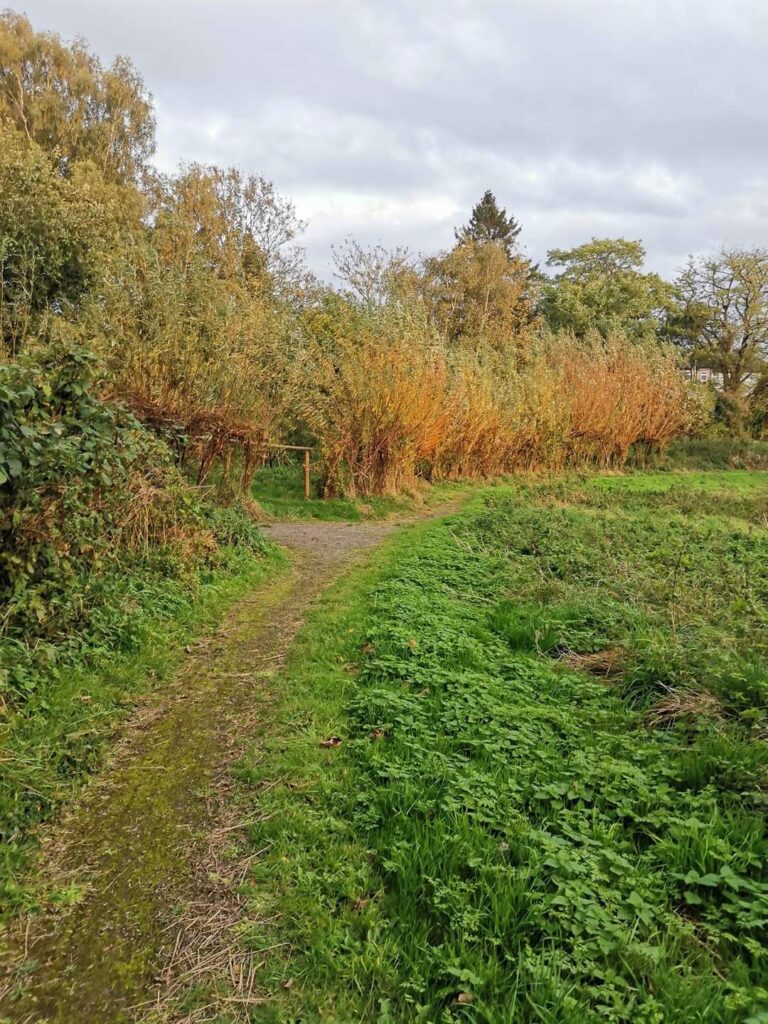
It is ‘overgrown’ to give small species cover from predators.
There are entire ecosystems we can’t see, and without them all life is at risk.
We have moved away from the ecosystem.
Extraction makes the rich even richer, but it has quickly made the planet uninhabitable, and soon enough there will be no materials left to extract.
Industrial agriculture or permaculture?
Over-extracting elements of nature and over-simplifying human needs has made our bodies and our environment less biodiverse.
Low biodiversity makes all life less resilient and less adaptable.
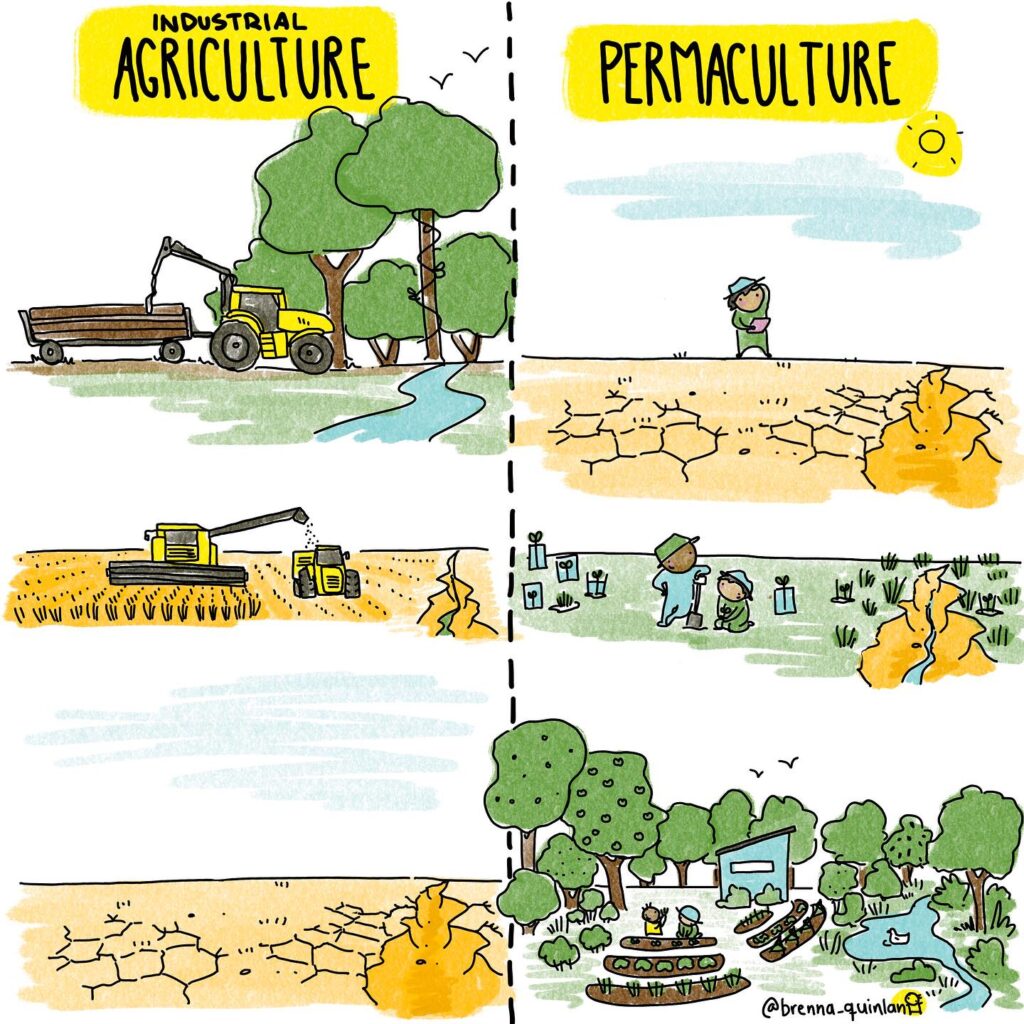
A worldwide ecological crisis has begun, so we should learn from the mistakes of the market.
To re-stabilise our ecosystems we need to ‘re-wild’ by planting native plants, we need to use regenerative methods to feed and accomodate everyone, and re-organise society so it can survive without commodifying nature and without polluting.
A society that is dependent on motor vehicles and motorised extraction can not survive the ecological crisis; but there are solutions in degrowth.
We have to be adaptable, this is how all life survives.
Take only what you need and leave the land as you found it “
Nank’haanseine’nan saying
For most of human history, many cultures saw humans as a part of nature, rather than outside of it. It is clear that we can’t afford to put more machines in the way of the natural means that can our needs.
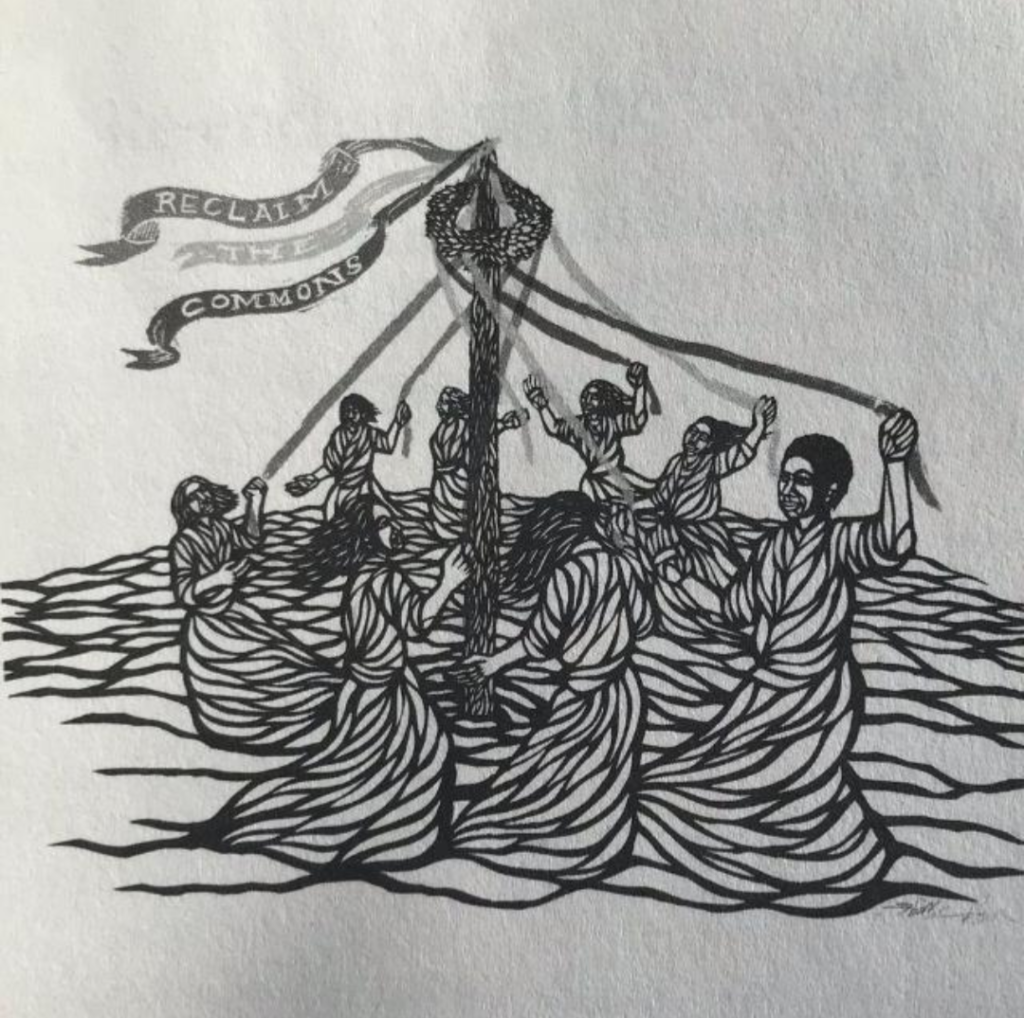
FINAL THOUGHTS:
‘Commons’ and ‘De-commoning’
The “commons” are a space or resource that no one owns but anybody can make use of.
For the past 500 years, British rulers have taken away almost all common land, selling it to landlords, developers, commercial farmers, and destructive projects like HS2.
This has allowed destruction and irresponsible land management, causing ecosystem breakdown.
De-commoning has taken away some essentials of life like community space, creative space, community food-growing space, and the ecological awareness that came with it.
“When we show respect for other living things, they respond with respect for us.”
What can we do?
“Protest is a fly on a dog’s back – but if you can take control, they can’t stop you” said one person in the orchard.
We have to reclaim spaces, and enable biodiversity. Climate Action West Northants have a booklet on how to encourage biodiversity called “Claim Back Your Space: Working With Nature”.
There are many different kinds of ‘occupation’, including protest camps like the Stop-HS2 sites. But reclaimed land can be used for other ecologically useful actions too, like at Grow Heathrow which stopped expansion of the Heathrow airport and provided a community-controlled space to up-cycle ‘waste’ materials.
A bigger example is the Zone à Défendre (ZÀD) at Notre Dame des Landes in France, which Peter Gelderloos writes about in ‘The Solutions Are Already Here: Tactics for ecological revolution from below’, it can be found on page 106 of the PDF, page 93 in the book.
This ZÀD, while also originally focused on stopping the construction of an airport, was 8 square miles of land democratically controlled by the people who lived there. They took a fluid approach to land-use and had a strong sense of collective responsibility to each other and the environment.
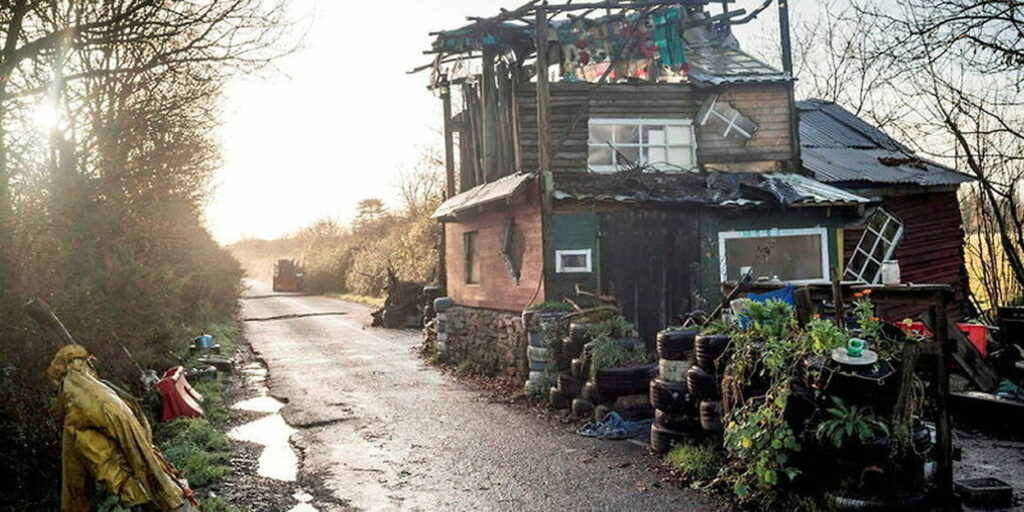
How to take responsibility for the land around us?
We have to invite likeminded people and share useful information.
We have to learn about local wildflowers, we have to spread them, we have to let the greenlands around us grow without being brutally trimmed, we have to learn how to prune trees and bushes so they grow stronger.
Most importantly, we have to do it ourselves!
___________________________________________________________
South Court Environmental and Blackbird Community Project are part of the Northampton Environmental Network that is trying to build capacity for unified action to protect and empower the local natural environment as well as the local community.
___________________________________________________________
To stay updated on events, follow the social media pages of SCE and BCP.
Do you have an idea for a Learning Circle event? Share it with BCP by social media or email – blackbirdcp(@)riseup(.)net
South Court Environmental on Facebook

